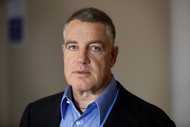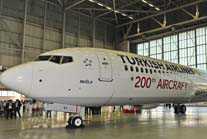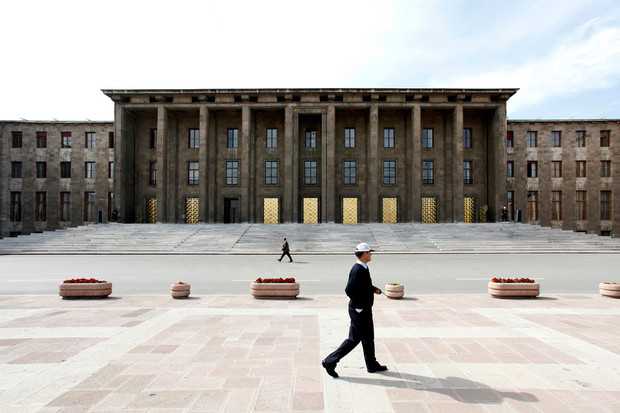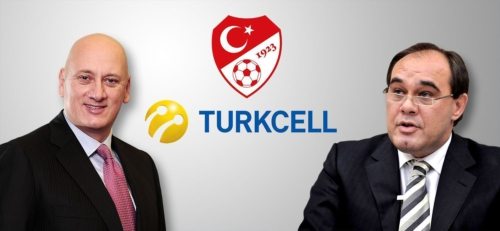By Devon Pendleton and Shoshanna Solomon – Nov 21, 2012 10:33 AM ET
israel Corp. (ILCO), the Tel Aviv-based holding company controlled by billionaire Idan Ofer, may reap 15 times its investment in Israel Chemicals Ltd. (ICL) if a $13.5 billion takeover bid by Potash Corp. of Saskatchewan Inc., the world’s largest fertilizer maker, is approved by Israeli regulators.
The deal, which could become the biggest acquisition ever in the Middle East, would allow Ofer, 57, to reduce the holdings he controls in his native country. The Ofer family has endured almost a decade of criticism for allegedly buying state assets at discounted prices, damaging the Dead Sea and selling an oil tanker to a front company for Iran.
“They have been portrayed as villains in the media,” said Gilad Alper, a senior analyst at Excellence Nessuah Investment House Ltd. in Ramat Gan, Israel. “This is a way of getting out of the public eye and ending the constant quarreling with the government and environmentalists.”
Potash, which owns 14 percent of Israel Chemicals, would become the world’s biggest producer of the mineral compound used to make fertilizer if the acquisition is approved. Executives at the Saskatoon, Saskatchewan-based company held talks with Israel Prime Minister Benjamin Netanyahu and met with government agencies about the “possibility of a merger,” Israel Corp. said Oct. 31 in a statement to Tel Aviv’s stock exchange.
Harvested Minerals
Israel Corp., which controls 52 percent of Israel Chemicals, has plunged 7.5 percent since the announcement as the chances of the deal being approved have diminished amid escalating security concerns. Israel Chemicals’ minerals are harvested from the salt-rich Dead Sea along the border with Jordan, and analysts said the Israeli government is concerned that foreign ownership would hinder its ability to defend the boundary should unrest in the kingdom boil over. A bomb exploded on a bus in Tel Aviv around midday today near the city’s military headquarters, sending 21 people to the hospital, according to police spokesman Micky Rosenfeld.
Motti Scherf, a spokesman for Ofer, said the billionaire declined to comment on the talks. An Israel Corp. spokesman, Elad Cohen, also declined to comment on the discussions.
Ofer, who is worth $5.6 billion according to the Bloomberg Billionaires Index, owns 46 percent of Israel Corp. and was chairman of the investment company until 2010. The entity has interests in shipping, oil refining and power generation. He also controls a 71 percent stake in Houston-based Pacific Drilling SA (PACD), the seventh-largest public U.S. drilling company by market capitalization and, with his brother Eyal, splits ownership of Sammy Ofer Group Monaco, the shipping group started by their father.
Outside Israel
The acquisition of Israel Chemicals by Potash would make Israel Corp. the largest shareholder in the Canadian fertilizer company. According to Guil Bashan, an analyst at IBI-Israel Brokerage & Investments, a merger would bring a welcome return for Israel Corp. shareholders.
“About 85 percent of the total value of Israel Corp. derives from its position in Israel Chemicals,” he said in a phone interview Nov. 13. “Right now, it’s trading at a huge discount to its net asset value.”
Israel Chemicals today reported a 9 percent drop in third- quarter to $395 million, beating the $385 million median estimate of three analysts surveyed by Bloomberg. Sales fell 3.7 percent to $1.82 billion, compared with a $1.86 billion median estimate of four analysts.
Israel’s Richest
The deal would accelerate Ofer’s efforts to expand Israel Corp.’s investments beyond Israel. In 2007, the company partnered with Chery Automobile Co., China’s biggest car exporter, to collaborate on a new brand of passenger cars. Three years later, Israel Corp.’s Peruvian unit got authorization to set up a power plant in the central Andean region of Huancavelica. About 74 percent of the company’s revenue was generated outside Israel last year.
The company also owns a 28 percent stake in electric car services provider Better Place Inc. Idan Ofer is the company’s chairman. On Nov. 19, Israel Corp. said it completed an investment of $33 million as part of a commitment of as much as $67 million in the unprofitable Tel Aviv-based company, due to its “cash flow needs.” Moshe Kaplinsky, the CEO of the five- year-old company’s Israel operations, stepped down Nov. 14, six weeks after the resignation of founder and global CEO Shai Agassi.
The Ofer family’s $10 billion fortune is rooted in shipping. Romania-born Sammy Ofer became Israel’s richest man building a fleet of hundreds of freight ships in the 1970s. The billionaire spent most of his time in Monaco, and his international armada was managed through closely held Sammy Ofer Group Monaco.
Shakshuka System
Idan, Sammy’s youngest son, has lived outside his home country for almost half of his life. After attending London Business School, he spent 15 years in Hong Kong and Singapore, where he helped acquire and run Tanker Pacific Management Pte Ltd., one of the family’s ship-management companies.
In 1997, Israel Corp. paid the Israeli government 667 million shekels ($171 million) to raise its stake in Israel Chemicals to 42 percent from 25 percent. That holding is now valued at 9.9 billion shekels, based on the company’s Nov. 20 close, giving the company a return of 15 times its investment. Two years later, Idan acquired a controlling interest in Israel Corp. That stake is now worth $2.2 billion.
In 2004, Israel Corp. agreed to buy the government’s 48.6 percent interest in Haifa-based Zim Integrated Shipping Services Ltd., a container shipping company, for $115 million. A 2008 documentary by Israeli investigative journalist Miki Rosenthal, The Shakshuka System, said that the government sold Zim for below its market value after succumbing to pressure from the Ofers and Israel Corp.
Iran Sale
Ofer sued Rosenthal for libel in July 2009, claiming the documentary was one-sided and skewed. An out-of-court agreement was reached in February 2010 ending their dispute. Most Israeli television channels wouldn’t air the program which included in- depth reporting of many of the Ofers’ dealings with government.
At the time of Sammy Ofer’s death in June 2011, the family’s assets had been divided between his sons Idan and Eyal, with Idan overseeing Israel Corp. and Eyal taking control of real-estate interests, among other assets. Eyal, who serves on the board of Royal Caribbean Cruises Ltd. (RCL), has a net worth of $5.1 billion, according to the Bloomberg Billionaires Index.
In May 2011, the U.S. State Department imposed sanctions on Tanker Pacific Management for selling an oil tanker valued at $8.7 million to a United Arab Emirates company that the U.S. Treasury Department had designated as a front for the Islamic Republic of Iran Shipping Lines. According to a State Department fact sheet, the Iranian company was deemed by the U.S. and the European Union as having a role in supporting Iran’s nuclear proliferation activities.
No Knowledge
Tanker Pacific Management issued a statement that said, “it had been misled by the buyers,” and had put in place “enhanced due diligence measures.” The family says it had no knowledge of the sale by Tanker Pacific.
A sale to Potash Corp. would also relieve the Ofers of dealing with pressure from environmental groups and the Israeli government, both of whom have accused Israel Chemicals of contributing to the shrinking water levels in the Dead Sea. The salty inland lake sank a record 1.5 meters (4.9 feet) in the past 12 months because of industry use and evaporation, according to the Hydrological Service of Israel.
Half the drop was caused by Israel Chemicals and Jordan’s Arab Potash Co. (APOT), said Gidon Bromberg, Israeli director of the Friends of Earth Middle East. He said the organization plans to fight the possible acquisition.
Earlier this year, Israel Chemicals agreed to pay 80 percent of the $1 billion cost of dredging the Dead Sea’s southern basin. The company also agreed to double the royalties it pays to the Israeli government.
Declining Level
“The main reason for the declining sea level is the increased usage of the water that used to flow to the Dead Sea in the past, especially from the Jordan River, by all countries in the region,” Dead Sea Works, which is owned by Israel Chemicals, said in an e-mailed statement last month.
An acquisition would need the backing of the Government Companies Authority, the Anti-Trust Authority and the Israel Tax Authority. The government’s so-called golden share in Israel Chemicals, a type of share that gives its holder veto power over any changes to a company’s charter, allows it to prevent a takeover by parties hostile to the country and to protect natural resources.
Public Outcry
A Potash acquisition could also help deflect attention in a country that has become more vocal about its dissatisfaction with the gap between rich and poor. Along with other billionaire families, the Ofers were the target of a countrywide protest last summer by thousands of Israelis who pitched tents in Tel Aviv, Jerusalem and other towns to demand lower housing and food prices.
The public outcry has been a concern to such families, according to Raphael “Raffi” Amit, a professor at the University of Pennsylvania’s Wharton School, who has focused his research on wealthy families and their businesses.
“Israel is a small country,” he said in a phone interview Nov. 15. “There are many, many political parties and everyone has more than one opinion.”
If Ofer can sell Israel Chemicals to Potash Corp., the family will “get a lot of money and a lot of peace of mind,” said Alper of Excellence Nessuah Investment House.
To contact the reporters on this story: Devon Pendleton in New York at dpendleton@bloomberg.net; Shoshanna Solomon in Tel Aviv at ssolomon22@bloomberg.net
To contact the editor responsible for this story: Matthew G. Miller at mmiller144@bloomberg.net






